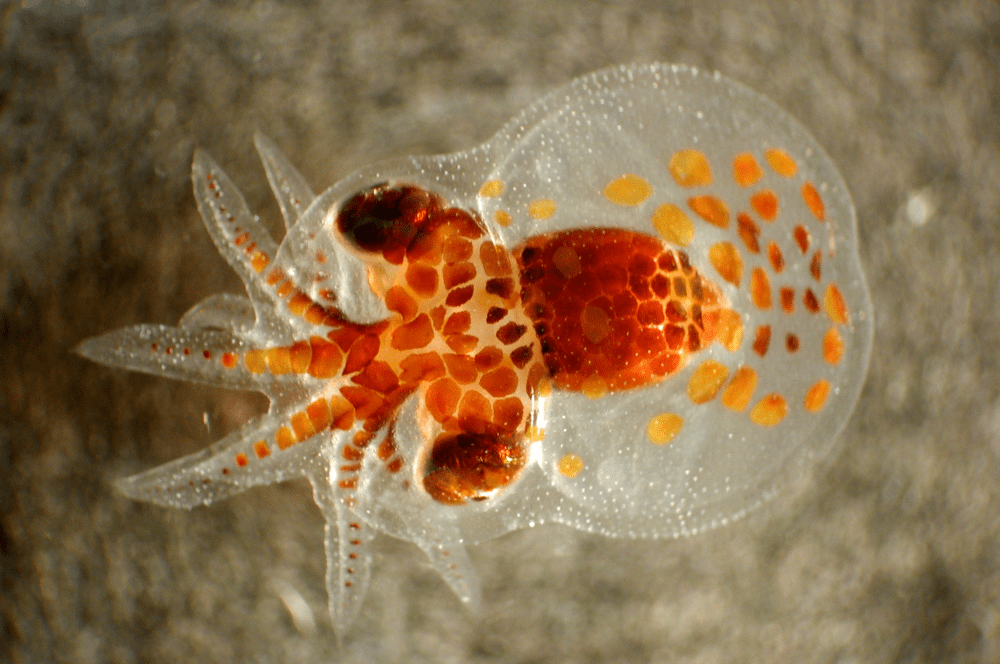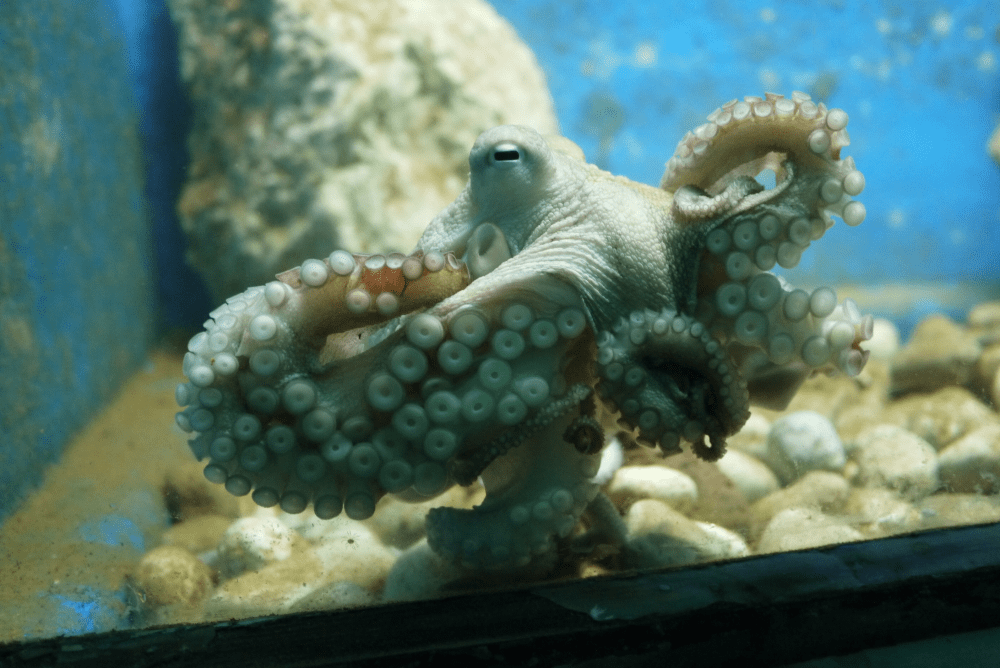Octopuses are highly intelligent animals capable of advanced problem solving and learning, and have even exhibited behaviors that suggest they have personalities and feel pain, but they have one significant weakness: they’re considered a delicious delicacy across the globe. Now a proposal for the “world’s first intensive octopus farm” in Gran Canaria has scientists and conservationists concerned.
Demand for octopus meat has spiked in recent years, and with a growing market, companies have been trying to crack the code to breeding them in captivity so that they can be mass-produced and sold. Now, octopus farming is back in the press after BBC News received documents from Eurogroup For Animals regarding a planning proposal for Nueva Pescanova, a Spanish multinational that wants to farm octopuses.
The documents were sent to the Canary Islands’ General Directorate of Fishing for review, and details of the proposal have scientists concerned.
Keeping octopuses in tanks
Octopuses are typically solitary animals that prefer dark environments, but Nueva Pescanova reportedly intends to keep multiple Octopus vulgaris in thousands of well-lit tanks stored across two floors in a building in Las Palmas, Gran Canaria.
Once ready for slaughter, they’ll be freeze-killed in an ice slurry kept at -3°C (26.6°F). Some studies conclude this is a more humane euthanasia option for fish when compared to alternatives like benzocaine overdose. However, research has found that other marine species killed in this way exhibit physical and physiological changes associated with stress, experience severe pain from muscle contractions, and don’t always die right away.

Breeding farmed octopus in captivity
The secret to captive breeding has held back octopus farming for years, but in 2019 Nueva Pescanova found a way. As well as raising new generations from captive individuals, they also claim to have found a way to extend their lifespan, though some argue it would be a longer life not worth living.
In the essay, The Case Against Octopus Farming, Jennifer Jacquet and a team of authors argue that octopuses are “particularly ill-suited to a life in captivity and mass-production, for reasons both ethical and ecological.”
The essay explains that the interaction between an octopus and its environment is so complex, with mimicry, play, and hunting in their species and terrain-rich intertidal habitats, that removing it would be taking away their “meaningful lives”. Confinement is known to cause extreme psychological distress to intelligent animals, with poorly kept zoo animals often exhibiting damaging behaviors such as pacing, self-mutilation, and regurgitation to name a few.
Will octopus farming cause animal suffering?
Octopuses feel emotional and physical pain, according to a 2021 study that established they would take steps to avoid painful situations and remedy pain triggered by an injection. This shows that, unlike other invertebrates, octopuses don’t just register pain, but they also perceive it as a negative experience – a degree of cognition that doesn’t blend well with captive environments.

Being contained in a well-lit tank with lots of other octopuses is about as far as you can get from O. vulgaris’s natural habitat. Image credit: TamaraP / Shutterstock.com
Their intelligence and sensitivity meant they were granted sentient status in the UK in 2021 following an independent review examining over 300 studies, finding “strong scientific evidence decapod crustaceans and cephalopod mollusks are sentient”.
“Sentience refers to an animal’s ability to have subjective experiences, such as pleasure, pain, fear, and other emotions. [It] pertains explicitly to an animal’s ability to feel the world and is often considered in discussions of animal welfare,” Michaella Pereira Andrade and Tatiana Leite told IFLScience in issue 8 of our e-magazine, CURIOUS. The researchers are heading up a new project funded by the Wild Animal Initiative to investigate what it’s like to experience life as an octopus.
In short, a sentient animal is one that’s capable of enjoyment and suffering. With Nueva Pescanova projected to turn over millions of animals annually, this could be very bad news for octopus welfare.
Source Link: One Million Octopuses To Be Farmed Annually If Spanish Farm Gets Approval